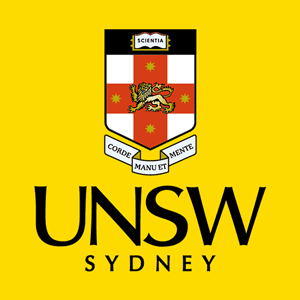Prepare for a career managing finances with a degree or postgraduate course.

Let's explore the best degrees for a career in finance in Australia. We'll break it down separately for bachelor degrees and postgraduate courses.
Bachelor Degrees in Finance
For many future professionals, a double major in Accounting and Finance is the best option for undergraduate studies. Competition for top jobs in the financial sector can be intense, making an accounting qualification a good backup strategy.
If you don't want to be an accountant, majoring in Finance is an obvious choice. The rest of your business or commerce program can be made up of electives in areas of interest or intended specialisation.
You can also complement financial studies with a major or minor in another field. Economics is a popular option as it gives you insight into the economy and markets. Business Analytics is helpful for future analytical roles and for using data to guide decision-making.
Bachelor of Accounting and Finance

A Bachelor of Accounting and Finance develops expertise in financial reporting and analysis. The double major is versatile compared to straight Finance. Gain job security with the option to be an accountant.
Accounting job opportunities include financial accountant, tax accountant, and auditor. Example finance positions are financial analyst, investment banker, and portfolio manager.
Bachelor of Finance

A Bachelor of Finance is often known as a Bachelor of Commerce (Finance) or Bachelor of Business (Finance) in Australia. The major is available in 3-year undergraduate business programs.
Students gain general business training and financial skills, establishing a platform for interesting and lucrative careers. Opportunities are available in banking, financial analysis, portfolio management, insurance, trading, advisory services, and more.
Bachelor of Economics and Finance

Economics and Finance is a popular combination for majors and minors. A bachelor degree in these fields gives you access to a greater range of jobs.
Economists need to understand finance and financial systems. Likewise, finance professionals, when making investment recommendations, should understand economic principles and patterns.
Bachelor of Business Analytics and Finance

A Bachelor of Business Analytics and Finance combines financial and analytical skills nicely. Graduates are prepared for roles in financial analysis, investment management, and business analysis.
Graduates with this double major have a competitive edge in the job market with strong analytical and business skills. Data is central to decision-making in finance and beyond.
Related: Bachelor of Business Analytics
Bachelor of Finance and Financial Planning

A Bachelor of Finance and Financial Planning combines finance subjects with training in planning. Graduates work as financial planners, financial advisors, wealth managers, investment analysts, or risk analysts, among other roles.
This double major is more versatile than a straight finance degree. The planning aspect should appeal if you're interested in working with clients to create custom plans.
In-Demand Masters Degrees
Whether you're looking to start a career in finance or already working in the industry, postgraduate courses can help you further your ambitions. But which master's degrees offer the best job prospects in this field?
While not a masters as such, we've ranked the Graduate Certificate in Finance at number one. The four-subject course is versatile and open to people from different backgrounds, including those without a formal business education. It is usually an introductory or specialised part of a master's program.
Masters in Finance programs are often flexible, allowing students to choose their area(s) of specialisation via elective selections. Applied Finance is a popular program that emphasises techniques over theory. Another option, particularly for those aspiring to be corporate leaders, is the MBA.
The Graduate Certificate in Finance is a four-subject course usually embedded in a longer master's program. Students often study part-time while working full-time, completing a subject every 2 months.
You don't need a business degree to meet entry requirements. Often, the course is the introductory part of a masters, making it ideal for people looking to switch careers.
UNSW Online - Graduate Certificate in Applied Finance
The Graduate Certificate in Applied Finance from UNSW Online is an introductory course within a master's program. A business degree is not essential. Learn concepts and methods for financially managing organisations. You apply knowledge to real-world examples, gaining insight into how financials shape business decisions. The course consists of four subjects and takes 8 months of part-time study. Topics include investment strategies and corporate financial management.
UNSW Online - Graduate Certificate in Financial Technology
The Graduate Certificate in Financial Technology from UNSW is for professionals looking to expand their FinTech knowledge and capabilities. Select four subjects from a pool of ten in the master's program, covering topics such as technical tools for FinTech, data management, technological disruption, and robo-advisory and portfolio optimisation. After finishing, you can progress to a graduate diploma or a master's degree in applied finance.
The Master of Applied Finance is a hands-on business masters, avoiding theory without obvious real-world usefulness. The curriculum may align closely with the CFA (Chartered Financial Analyst) test.
Example topics are Ethical and Professional Standards, Quantitative Methods, Economics, Financial Reporting and Analysis, Corporate Finance, Equity Investments, Fixed Income, Derivatives, Alternative Investments, and Portfolio Management.
UNSW Online - Master of Applied Finance
The Master of Applied Finance develops your ability to manage and lead financial functions in business. The 12-subject program has 8 core units plus 4 electives and positions graduates for the CFA designation. Topics include analytics, financial technology, portfolio management, equity valuation, and business management. The UTS Online program is accelerated, allowing you to earn a degree in 2 years part-time. You can start with a Graduate Certificate embedded course.
The ultimate degree for financial training is the Master of Finance. Whether you're an experienced financial professional or looking to break into the field, normally the program is worth the investment.
A Masters in Finance is typically a 12-subject course. With accelerated online programs, you're able to work full-time and study part-time. You can specialise in fields such as analytics, applied finance, FinTech, or management and leadership.
Griffith University - Master of Finance
Build skills in investment, portfolio management, and financial analysis with the Master of Finance at Griffith University. It offers distinct pathways for new and experienced finance professionals. The curriculum prepares students for CFA and CAIA exams. There is an emphasis on practical application and ethical standards. Flexible study options are available online and on-campus at Nathan Campus, Queensland. Graduates are ready for careers in finance, investment, and banking.
The Master of Financial Technology is for people familiar with the finance industry who are interested in innovation. Learn how to conceive technology solutions and deploy resources for digital transformation.
FinTech is a growing sector with unmet skill demands. Topics include decentralised finance, tech disruption in payments or borrowing, technical tools for FinTech, data management, and robo-advisory services.
UNSW Online - Master of Financial Technology
The 100% online Master of Financial Technology from UNSW creates job opportunities in the expanding FinTech industry. While a background in finance and/or technology is ideal, graduates of any discipline may gain entry via a graduate certificate pathway. Learn how to use technology to innovate in financial services. Subjects include technical tools for FinTech, problem-solving methods, decentralised finance, and tech disruption in finance and lending.
A Master of Business Administration may serve your purposes better than a Master of Finance due to its broader focus on business strategy and management skills, which are valuable in executive roles.
MBA in Finance graduates are sought after for leadership positions in investment banking, management consulting, and private equity firms. Job opportunities include financial analyst, investment manager, risk analyst, financial controller, and treasury manager, among others.
VU Online - MBA (Finance)
The MBA (Finance) from VU Online prepares you for leadership roles involving financial management. Students explore business topics such as leadership, marketing management, and innovation, along with specialist subjects like advanced finance, capital allocation, financial analysis, and financial management. The online learning model has won awards for its effectiveness and includes student-centered activities and assessments. There are no exams.
Financial Jobs in Australia

Jobs for financial professionals will continue growing steadly in Australia according to National Employment Projections. By May 2028, Finance Manager roles in Australia are forecast to rise by 13.3% to 81,327 positions. Financial Investment Advisers and Managers will experience a growth of 4.7%, reaching 63,679 jobs.
Competition for specialist jobs in Australia is high. Bachelor students may be advantaged by combining finance with another major, such as economics or accounting. For university graduates, a masters helps you to be considered for top positions.
Careers in this field involve finding effective ways to manage an organisation's money – to create wealth and increase company value. Finance majors study how to plan, raise funds, make wise investments and control costs. Students who want an edge over competitors should really take advanced mathematics, accounting, economics, psychology, communications, and writing courses.
Financial expertise is needed in virtually all organisations, including public and non-profit entities. A job in the finance sector can be modest and include tasks such as data entry and producing simple sales reports using software. But, at the other end of the scale, you could be guiding multi-billion-dollar decisions around business activities or capital investments.
The best professionals in this field are multi-talented, with excellent technical skills plus abilities in areas such as relationship building, communication, technology application, and inventiveness. And financial skills are useful even if you do not ultimately work as a finance specialist, including in business management, marketing and logistics.
You can search sites like Seek Australia to find graduate programs. Multiple entry-level positions are available with organisations such as Viva Energy Australia, the Water Corporation, ACCIONA Australia, the Department of Finance, Westpac, NAB, and more.
According to Investopedia, some of the best entry-level jobs are financial analyst, investment banking analyst, financial planner and junior tax accountant. Wherever you start, promotion opportunities always exist. For instance, tax roles can lead to senior positions "such as controller (or comptroller), accounting manager, budget director, and even treasurer or chief financial officer (CFO)."
Some of the biggest employers of finance professionals are:
- commercial banking (administering savings products, credit lines, business loans and mortgages)
- corporate finance (managing a company's financial strategy, loans, spending and reporting)
- insurance (risk analysis, insurance policy development, claim auditing)
- investment banking (investment advice, wealth management and capital raising for companies and funds)
- private equity (assisting businesses raise capital for new ventures or ongoing activities).
Online Courses
Finance courses can be studied 100% online with Australian universities. Your learning experience is likely to be quite different depending on whether you're studying an undergraduate or postgraduate course, with the latter designed for working professionals. However, for any good program, you should have easy access to materials, instructors and classmates.
With a 3-year Bachelor of Finance online, the program typically parallels an on-campus version of the same course. You'll be working to the same schedule as on-campus students, with 2-3 semesters per year and the same exams. You may also have the option to turn up to classes in person if and when you're available.
Finance can be studied as a major in an online accounting, or business and commerce bachelor's program. Typically, students do not have to choose a specific major until after their first year of study. In a 24-subject program, the curriculum usually consists of equal parts of (a) core subjects that all students must take, (b) finance electives, and (c) other electives.
The best Master of Finance online programs are designed just for distance learners. Instead of semesters, you may study in teaching blocks of 6-8 weeks. You're able to complete an individual subject from start to end during each block. Assessment may be continuous, without any long exams.
Good online masters programs are also accelerated and part-time. They are designed with working professionals in mind. You study right through the year. At a pace of one subject every couple of months, a 12 subject masters takes 2 years of part-time study.
Graduate certificates (4 subjects) and graduate diplomas (8 subjects) are usually embedded in Masters of Finance. You may, for example, start with a graduate certificate and, after completing this successfully, decide to complete a full masters. The programs are open to university graduates and experienced professionals.











